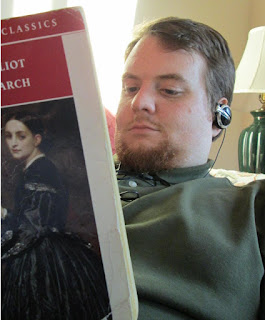It's almost March 2013, so of course we're all talking about
the best movies of 2012. If all the complaining on Twitter is any indication,
I'm once again happy to have skipped the Academy Awards. Naturally I disagree
with some of the winners. More naturally, I don't understand what some of the
categories mean. But nothing shall dissuade me from telling a sizable
democratic body of people who devote swaths of their lives to film that their
mass conclusions were wrong. So here we go.
The Too Little/Too Late Award
Going to the movie I missed by several years,
but have now seen and wish I'd been on the bandwagon for at
the time
Big Trouble in Little China
The Raddest Scene Award
Going to the raddest scene in a motion picture
Raid: The Redemption,
the brothers face Mad Dog
For the Shorties, OR, The Terminus/Validation Award
Going to the short film I wouldn’t shut up about all year
Paperman
The Best Soundtrack
Award
John's already used the "going to the obvious thing-award" joke,
so this is embarrassing
John's already used the "going to the obvious thing-award" joke,
so this is embarrassing
Raid: The Redemption
The Dark Horse Award
Going to the movie that was way better than you all led me
to believe it would be
Lockout
You're Actually All Great At This
Going to the best ensemble in a motion picture,
since a great cast is way more impressive than a single
great performance
Silver Linings Playbook
The Frank/Nixon Memorial Award
Going to all actors who performed as well or better
than Frank Langella did in Frost/Nixon
For the fifth year in a row, No One
The "There's No Such Thing As The Best Movie of the
Year" Award
Seeing as there is no such thing as a best movie amidst a
field of
comedies, dramas, musicals, period pieces, speculative fiction, animation,
blockbusters and an international film market we're both not watching enough of as it is,
the award that simply goes to whatever movie brought me
the closest to both crying and laughing last year
comedies, dramas, musicals, period pieces, speculative fiction, animation,
blockbusters and an international film market we're both not watching enough of as it is,
the award that simply goes to whatever movie brought me
the closest to both crying and laughing last year
The
Secret World or Arrietty
Other great movies I was too unambitious to invent awards for:
Robot & Frank, Beasts of the Southern Wild, Delhi Belly, Safety Not Guaranteed
Movies of 2011 Awards
Movies of 2010 Awards
Other great movies I was too unambitious to invent awards for:
Robot & Frank, Beasts of the Southern Wild, Delhi Belly, Safety Not Guaranteed
Movies of 2011 Awards
Movies of 2010 Awards















